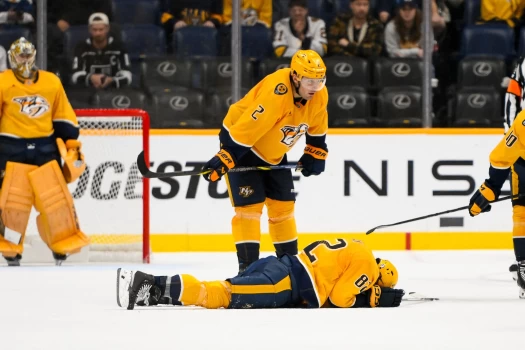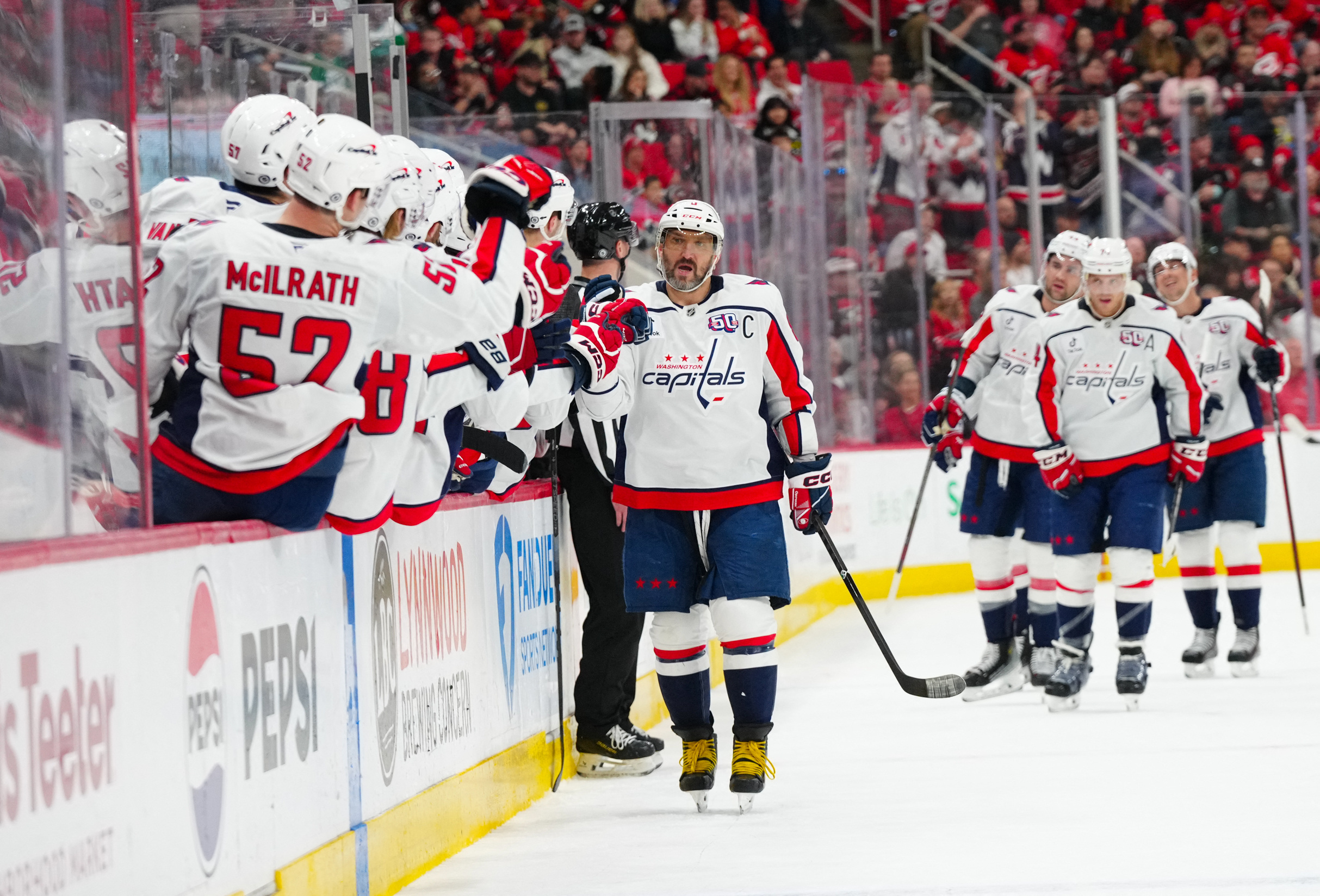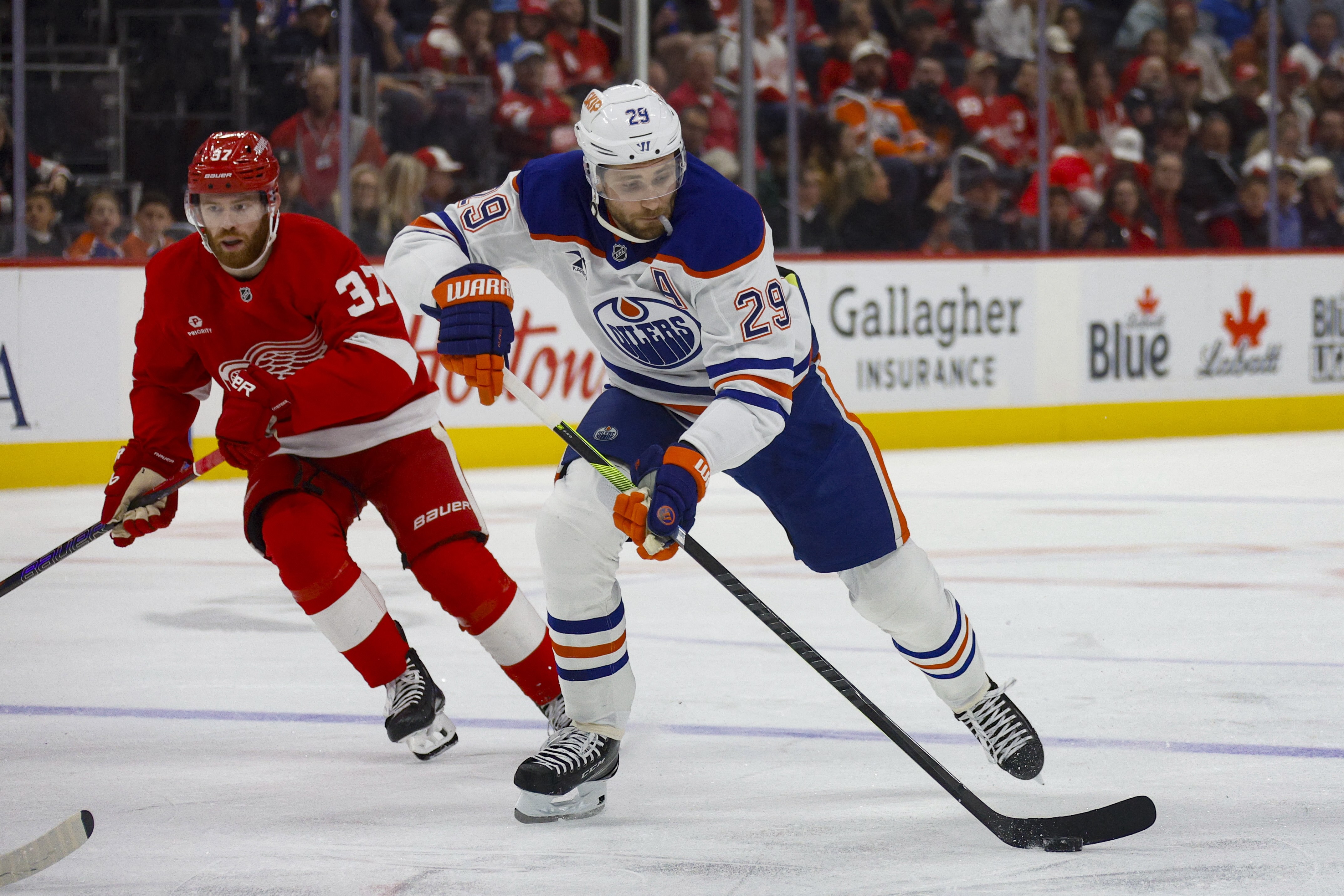Take Town: Crucial decision time for the Nashville Predators

Barry Trotz said in a radio interview this week that if the Nashville Predators don’t start moving in the right direction soon, they will have to consider a rebuild plan.
That’s quite interesting, isn’t it? Just a few months ago, Trotz traded away his 22-year-old “Goalie of the Future” to extend a goaltender seven years older through 2033. He also signed 33- and 34-year-old forwards to five- and four-year deals, respectively, and a 30-year-old defenceman through 2031. Now, the six highest-paid players on the team have some form of movement protection, and there’s nobody with a significant contract coming off the books this summer.
I don’t know how you go from, “We can be competitive, but need to add $20.5 million in cap commitments to do it,” to, 10 or 11 games later, saying, “Maybe we need to think about rebuilding.” This could just be a scare tactic, with Trotz trying to light a fire under his players’ backsides. He really doesn’t have much choice, because the idea of a rebuild at this stage just doesn’t seem realistic. I guess you have to pay someone even if you’re tanking, but I wonder how many teams would actually line up to trade for even top veterans like Filip Forsberg or Roman Josi, given they’re signed for many years at high salaries and have final say on any trade destinations.
This also feels like it might be laying the groundwork to simply fire the coach, who was a genius then not one then he was one again, and now I guess he might not be. Whatever the mix is, it's not working, and if you want to say Andrew Brunette's to blame, I guess I can see the argument.
I have to believe, based on the talent level on this roster, that there is a solution here, and while I hate to invoke the U2 thing yet again, it would take that kind of run to get them back into the playoff conversation. It was incredibly unlikely to happen once. Happening twice in the space of something like 40 games has to be pretty close to an impossibility.
So I don't know what Trotz's move is here. A rebuild would be difficult to pull off and probably piss off all the guys he just extended. This was a decision that could have been made around the last trade deadline, when there was talk of trading Juuse Saros, but now it would just be a sign of a GM who has no idea what his team is or where it's going.
Here's some hope: The Tampa Bay Lightning missed the playoffs in 2016-17, then put up 113 points and went to a Conference Final the following season. A year later, they set the single-season points record, and the two years after that they won back-to-back Stanley Cups.
Maybe ask around the dressing room and see if anyone in there knows how they pulled that off. That might be the only workable angle here.
Let's go:
A quick thought on some upcoming extensions
I have been watching with some fascination how a few of the big-name players around the league who are up for new contracts this summer have been playing.
For example, we all know how weird things have seemingly gotten in New York, where Igor Shesterkin is playing like he's gonna win the Vezina Trophy in a walk. Man, what a season. But because the voters for the Vezina are the 32 GMs league-wide, I wonder how willing they would be to give him the award given the precarity of that contract situation. If he locks in — even on a deal that "resets the market" — before the season ends, which feels possible but maybe not likely, then why not give him the award if he earns it. But if he waits until the season ends and still doesn't have a contract, will GMs be willing to write down his name knowing that adding a Vezina to his resume only boosts his asking price and, in the future, the asking price for most other starting goalies in the league? I dunno, and I guess I can't think of any instances in recent years where this kind of contract situation arose for the tippy-top of the "elite goaltender" market.
The other guy I've been thinking a lot about, who's not technically a free agent until summer 2026 but is eligible to sign a new deal a year ahead of that, is Kirill Kaprizov. He's having an MVP-style season so far in Minnesota and of course the Wild have the exclusive ability to give Kaprizov eight years and has a full 12 months of exclusive negotiating. I wonder when that contract gets done. If he continues to produce at this pace, he will get a lot of Hart votes, probably win it, and put himself in the same earning class as other recent MVP winners like Nathan MacKinnon, Connor McDavid, Leon Draisaitl, and Auston Matthews. The floor on those guys is McDavid's $12.5-million AAV, and McDavid, like Kaprizov, is eligible for a new contract this summer, to go into effect in 2026-27. No one's going to argue Kaprizov deserves the, presumably, $15-16 million per year McDavid will get. But once that number comes in — and I'd argue Kaprizov should wait until McDavid is extended to re-sign with Minnesota — the new lowest AAV in that group will be MacKinnon's $12.6 million. That's probably right around where a new Kaprizov contract would start.
And that goes without mentioning the rumors over the summer that Kaprizov was really eying a move to Chicago on his next contract. Minnesota's owner has already said he's not going to be outbid for this deal, but if it's an Artemi Panarin situation where the player just wants a very specific change of scenery, what can ya do?
Nonetheless, this has to be the thing Bill Guerin and Chris Drury are looking at today, tomorrow, next week, and all the way up to July.
What's up in the Pacific?
One of the teams that I was most intrigued by this season was the Vancouver Canucks. They had a big breakout season last year and a decent bit of it was at least kinda fake, driven by a sky-high shooting percentage, but also kinda real, driven by solid underlying numbers. This year, their percentages are a lot more in line with league norms — 11th in all-situations shooting and 23rd in save percentage, though the latter number is a bit misleading — but the underlyings are… still good. They entered Wednesday 11th in expected-goals percentage in all situations, and fourth at 5-on-5. Can't ask for much more than that from a roster like this.
More important, they've overcome that rather poor save percentage, which is happening entirely because Arturs Silovs can't make a stop, and Thatcher Demko is hurt. Kevin Lankinen has been phenomenal in his eight starts, running .923 and undefeated in regulation, and that's why the Canucks are 6-2-3. The question for them was always what they would do while Demko was hurt — apparently he's nearing a return, but who knows how close to 100 percent he will be when they get him back into games — and while I don't expect Lankinen to be .920-plus at the end of the season, they just needed this bridge to Demko hopefully being himself. The fact that they're winning all these games with Demko out and big-money Elias Pettersson dramatically underperforming has me thinking maybe I underestimated them. All they need to do is keep playing like this and they ought to be in prime position for home ice in the first round.
That didn't feel guaranteed coming into the year, by any means, but right now, the Kings lead this division right now (by points, not points percentage), Vegas looks unstoppable at home (don't look into their road record) and we're still trying to figure out if Calgary and Edmonton want to be competitive (though I think we know the answer on both).
There are surprising teams, both good and bad, all over the league right now. But they seem to be disproportionately concentrated in the Pacific right now. Pretty weird.


